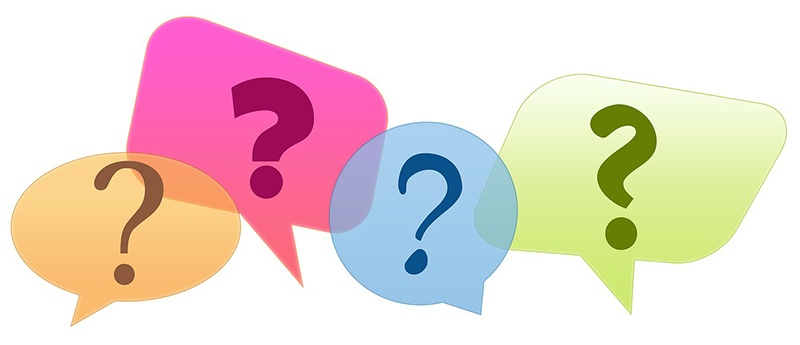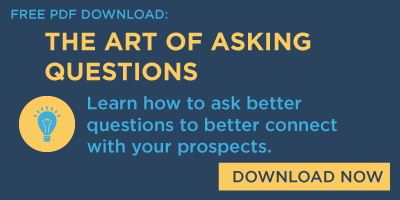
Undoubtedly it’s the question mark and should be the salesperson’s best friend. Understanding how to use the question mark can unlock the keys to the kingdom for a robust dialogue.
The Oxford English Dictionary defines a question as a “sentence worded or expressed to elicit information.” The question is a sentence begging for an answer. Marilee Adams, in her book Change Your Questions, Change Your Life, says that “we can intentionally affect the future by designing the most powerful questions for us getting there.”
Salespeople, in their quest to quickly provide solutions for prospects or clients, frequently bypass a critical step in the discovery process. That step is asking questions in such a way that the problem becomes clearly defined and the client becomes an integral part of a conversation and not an interrogation.
Learning how to ask powerful questions is both simple and elusive. Once mastered, it will profoundly change how to conduct a substantive needs analysis. If practiced regularly, it will have a positive impact on business since the salesperson and client are now on the same side of the net instead of volleying yes or no questions back and forth.
What Needs Analysis Should Look Like
As a sales leader, think back to needs analysis questions you’ve reviewed with a salesperson that look like this:
- Has your previous advertising worked?
- Do you want to make changes to your current marketing plan?
- Have you used radio (TV, newspaper, digital) before?
- Do you have an ideal customer?
The answers to these questions all have a common denominator: either a yes or a no. A sure conversation stopper is the “closed-ended question” or a potential dead end. Note the difference when the questions are framed in this way:
- Tell me about your current marketing plan.
- Why was your previous plan unsuccessful?
- What will success look like when you start advertising with us?
- Describe your ideal customer.
The Power of the Open-Ended Question
When a question sentence begins with “tell me about,” “describe,” “what,” or “how”, the responses have a greater potential to elicit meaningful information and an engaging conversation with the client. The salesperson isn’t paralyzed by trying to recover from a yes or no answer. Rather, this open-ended question allows the seller to pivot to a follow-up question and gather even more information and insight.
This method of questioning goes beyond uncovering key marketing challenges and extends to the salesperson's ability to troubleshoot and think differently about developing customized solutions as well as campaign planning. It involves anticipating obstacles and paving the way for smooth sailing with the client from the first call to closing the business.
Ask Yourself Questions, Too
The salesperson can also benefit from asking himself or herself questions in the meeting. Consider these questions from Change Your Questions, Change Your Life by Marilee Adams:
- What do I want?
- What are my choices?
- What assumptions am I making?
- How else can I think about this?
- What is the other person thinking or feeling?
- What am I missing or avoiding?
- How can I turn this into a win-win?
- What’s possible?
This approach builds credibility and trust all along the way. What do you think?



